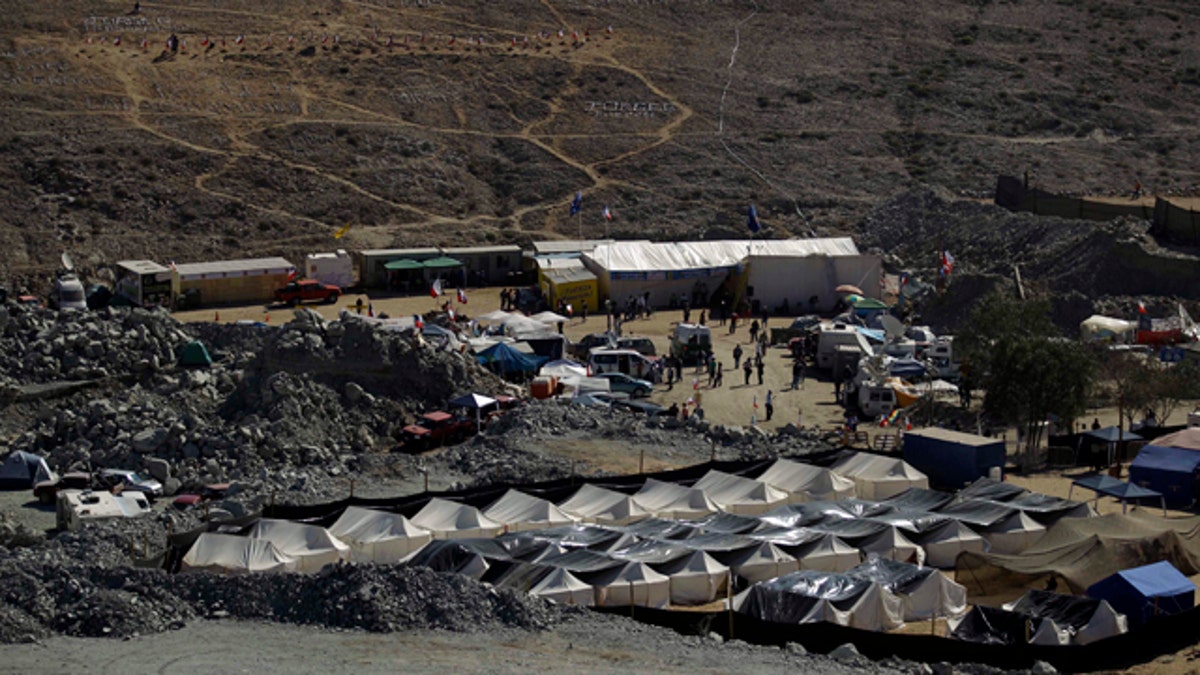
The camp where relatives of 33 trapped miners wait for news is seen outside the San Jose mine in Copiapo, Chile, Wednesday, Aug. 25, 2010. (AP)
With 33 miners trapped deep underground, Chile is seeking advice from NASA on how to keep them mentally and physically fit for the months it may take to rescue them.
"We received a request from the Chilean government about advice related to our life science research," John Yembrick, a NASA spokesman, told SPACE.com Wednesday.
The U.S. space agency, which routinely trains astronauts to cope with the isolation of months-long International Space Station missions, is providing survival tips to Chilean officials, who are able to communicate with the miners trapped 2,300 feet (700 meters) below the Earth's surface. The rescue mission could take up to four months, according to press reports.
NASA officials are currently in a meeting to discuss further details.
"Right now, we're still waiting to find out what specific questions they have for us, and how best we can assist," Yembrick said.
The small gold and copper mine in the northern Chile collapsed Aug. 5. On Sunday rescuers were able to dig a 6-inch-wide tunnel to reach the miners, the Houston Chronicle reported. But it could take four months to complete the rescue, which involves drilling a 2-foot-wide (0.6- meter) tunnel through 2,200 feet (670 meters) of solid rock.
The trapped minershave been able to live so far off of limited food and water supplies in an area the size of a large living room. A physician on the rescue team said that the miners started out eating two spoonfuls of tuna, a sip of milk and a biscuit every 48 hours, the Houston Chronicle reported.
"Psychologically speaking, we have to try to keep them on the right track and not give them false hope that it will be a short rescue," the Reuters news agency quoted Chile's Mining Minister Laurence Golborne as saying.
As time passes, NASA may be able to suggest ways for the miners to cope with the tough physical and psychological conditions.
Physicians have recommended that the miners do regular exercises to prevent muscle atrophy as they await extraction, Reuters reported.
Copyright © 2010 Space.com. All Rights Reserved. This material may not be published, broadcast, rewritten or redistributed.








































